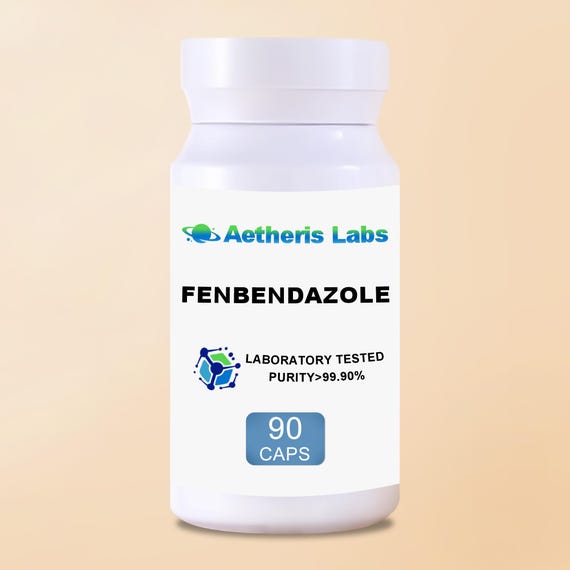fenbendazole capsules: Your Questions Explained
Wiki Article
Recognizing the Conveniences and Uses of Fenbendazole in Veterinary Medicine
Fenbendazole has actually established itself as a crucial anthelmintic in vet medicine. Its ability to target various parasitical infections makes it an important tool for veterinarians. The medicine's device disrupts necessary mobile processes in bloodsuckers, leading to efficient therapy end results. However, its safety and security account ranges species, requiring cautious factor to consider in its use. Understanding these dynamics can lose light on fenbendazole's more comprehensive ramifications in veterinary care and continuous research study right into its possible beyond standard applicationsSystem of Action of Fenbendazole

Usual Parasitical Infections Dealt With With Fenbendazole
A variety of parasitical infections are successfully treated with fenbendazole, making it a versatile option in vet medication. This anthelmintic agent is particularly effective against nematodes, consisting of roundworms and hookworms, which generally affect dogs and felines. It is likewise made use of for the treatment of cestodes, such as tapeworms, giving a wide spectrum of action versus both kinds of digestive tract bloodsuckers. In addition, fenbendazole is helpful in handling infections caused by protozoa, specifically Giardia, which can lead to stomach distress in animals. Its efficiency includes treating particular lungworms in dogs and felines, addressing respiratory wellness issues connected to these parasites. Generally, fenbendazole's capability to target multiple parasitic varieties makes it a useful tool in veterinary technique, making certain the wellness and well-being of animals impacted by these usual infections.Security and Effectiveness in Different Animal Species
The safety and security and effectiveness of fenbendazole vary among various pet varieties, emphasizing the relevance of species-specific factors to consider in veterinary medicine. In dogs, fenbendazole is usually well-tolerated and effective versus a series of intestinal bloodsuckers, including roundworms and hookworms. For felines, nonetheless, its usage is less usual and might need careful application as a result of possible negative reactions.In livestock, such as livestock and sheep, fenbendazole shows efficiency versus numerous endoparasites, adding to boosted health and performance. The pharmacokinetics and possible side results can vary noticeably in between types, demanding careful assessment by vets.
Horses also react positively to fenbendazole, find out here specifically for treating strongyles and ascarids, though dose and administration courses have to have a peek at these guys be tailored to their distinct physiology. Subsequently, understanding these differences is crucial for optimizing therapy outcomes and ensuring animal well-being throughout diverse species.
Administration and Dosage Guidelines
Proper administration and dosage standards are essential for optimizing the healing results of fenbendazole while lessening prospective side results. The dose generally varies depending upon the types being dealt with, the certain problem, and the solution of fenbendazole used. fenbendazole. For dogs and felines, a typical dose is 50 mg/kg body weight, administered when daily for three successive days, however veterinarians may adjust this based upon individual wellness analysesIt is important to provide fenbendazole with food to boost absorption and reduce stomach distress. The drug is offered in numerous types, including granules and paste, enabling flexible administration choices. Keeping an eye on the animal's action throughout and after therapy is recommended to verify effectiveness and safety and security. Additionally, veterinary guidance is vital to determine the proper duration of treatment based on the sort of parasitical infection being resolved, assuring ideal outcomes for the pet's wellness.
Future Viewpoints and Research Study on Fenbendazole
Research study on fenbendazole proceeds to develop, concentrating on its potential applications beyond traditional antiparasitic usages. Current research studies have explored its efficiency in dealing with different forms of cancer, specifically in veterinary oncology. Preliminary data suggest that fenbendazole might inhibit the growth of lump cells and improve the effects of various other chemotherapeutic agents.Scientists are exploring its function in taking care of stomach conditions in pets, highlighting its anti-inflammatory homes. The flexibility of fenbendazole for various types questions regarding its safety accounts and perfect application routines in varied populations.
As interest expands, there is a demand for detailed professional trials to establish evidence-based standards for these novel applications. Future research may likewise investigate the devices behind fenbendazole's effects, possibly leading the way for ingenious therapeutic techniques in vet medicine. The continuous expedition of fenbendazole can substantially improve therapy alternatives for various veterinary problems.

Regularly Asked Concerns
Is Fenbendazole Safe for Pregnant Animals?
The security of fenbendazole for pregnant animals remains unpredictable. While some research studies recommend very little danger, vets typically advise caution and typically advise against its use during pregnancy unless the advantages clearly exceed potential website here risks.Can Fenbendazole Be Used in Livestock?
Fenbendazole is generally utilized in livestock to deal with various parasitic infections. 222 mg. Its effectiveness versus gastrointestinal worms makes it a beneficial anthelmintic, contributing to improved health and performance in pets increased for food and fiberWhat Are the Adverse Effects of Fenbendazole?

The negative effects of fenbendazole may consist of intestinal disturbances, lethargy, and sensitive responses. In uncommon situations, much more serious reactions could take place, requiring mindful surveillance and consultation with a veterinarian throughout treatment.
How Does Fenbendazole Contrast to Various Other Dewormers?
Fenbendazole supplies broad-spectrum efficiency against different parasites, often contrasting favorably to various other dewormers. Its one-of-a-kind system targets various life stages, making it efficient, while normally providing a favorable safety profile contrasted to choices available on the marketplace.Can Fenbendazole Be Utilized for Treating Cancer Cells in Animals?
The possibility of fenbendazole in dealing with cancer cells in pets has amassed interest. Preliminary research studies recommend it may prevent cancer cell development, however even more study is necessary to validate its efficiency and security in vet oncology.Report this wiki page